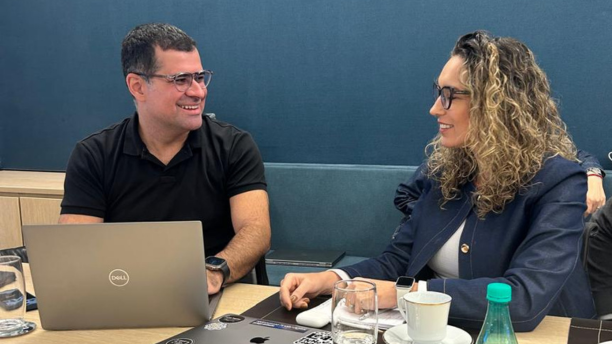
Guilherme Maciel and Cristiane Mendes
In recent years, leaders and companies have spent a disproportionate amount of energy debating whether work should be remote, hybrid or face-to-face. It has almost become an ideological dispute. On the one hand, Yvon Chouinard, founder of Patagonia, built an empire based on autonomy and trust, arguing that happy people deliver more and that, if the tide is good, you should drop everything and go surfing. On the other hand, Elon Musk demands forty hours a week in the office, maintaining that physical proximity is a condition for speed, intensity and excellence.
They are opposing visions, but both carry something admirable: coherence. Each one works for its context, its business and its culture. But that's precisely the point: this debate, although relevant at a given time, is no longer enough to explain the future of work. To get stuck on the question "where are we going to work?" is to ignore the fact that the real transformation has already shifted the axis of the discussion.
The companies that are really ahead don't stick to the format. They understand that the difference is not in the address, but in the ability to MANAGE WORK dynamically. They maintain a solid core of talent, which can be all together in the same building or scattered around the world, and around this core, they connect specialists on demand, in different modalities and timeframes, to solve critical problems or take advantage of unique opportunities. This is the essence of the so-called Open Talent Economy: an ecosystem where the boundaries between "employee", "consultant", "freelancer" or AI agent no longer matter. What counts is the right skill, at the critical moment, for the current mission.
This logic is not theoretical. It's what we see when a company hires a local executive just for the entry phase into a new market; when a team of engineers is mobilized just for the prototyping stage; or when data scientists are called in for a decisive modeling and analysis sprint. It's no longer a question of how many people are in the headcount, but of which combination of skills is capable of generating the greatest impact in the shortest possible time.
Artificial Intelligence amplifies this change. With it, it's already possible to map skills gaps in real time, connect the right talent to the right projects anywhere on the planet, automate operational tasks and free up human capital for what really moves the needle. AI allows us to think of teams as adaptable organisms, made up of humans and machines, each acting at their optimum.
In this new scenario, the role of leadership is also changing. It is no longer to control attendance or measure screen time, but to heal talent ecosystems, provide clarity of objectives and mobilize resources, both human and technological, in an orchestrated way. You don't just hire people to fill positions; you hire them to fulfill missions.
The future of work will not be decided by a badge, a hot desk or virtual meetings. It will be defined by our ability to mobilize the right talent, at the right time, to solve the right challenge. And in this context, it doesn't matter whether you start the day surfing in California or leading a meeting at eight in the morning in an office in São Paulo. What matters is how you deliver, with whom you deliver and the speed with which you turn intention into results.
Learn all about the on-demand talent movement that is reinventing work.
Download the free e-book and get access to the material prepared by our team!